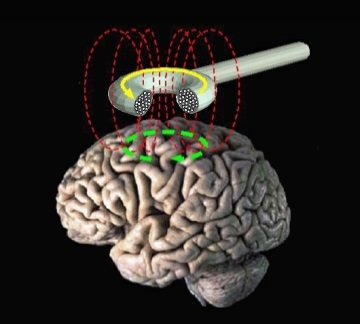A fascinating new study, published in Translational Psychiatry, looked at over 300 brain scans of people suffering with major depressive disorder and compared them with a group of healthy controls.
The researchers found a striking difference – cerebral blood flow was not only increased for those with depression, but also seemed to point in the direction of some of the biological bases for the disease.
To the first point, those with major depression had greater cerebral blood flow than those without it. That applied, globally, to the brain.
But, as the Children’s Hospital of Los Angeles explains it, the more interesting discovery is that regional blood flow differences were highest in the areas of the brain influencing thought, attentions, emotion and behavior.
“Problems in these regulatory circuits of the brain are consistent with long-known cognitive and attentional challenges that people with depression have, from impaired concentration to rumination and overall low mood,” [Dr. Bradley] Peterson shares.
That’s a fascinating result, in and of itself, but the study went farther.
Identifying increased blood flow throughout these key regions of the brain offers researchers a clue to the true biological culprits underlying depression: metabolism and cellular activity.
“It’s not blood flow per se that we’re interested in, it’s what the blood flow indexes,” adds Dr. Peterson.
Metabolism is driven by increased cellular activity. Hypermetabolism results when cells use excessive amounts of energy requiring increased blood flow. “There seems to be a global disruption of cellular functioning and metabolism in the brains of depressed people,” says Dr. Peterson, “Something isn’t running efficiently in the cells and isn’t appropriately controlling energy use.”
Read the whole study here.
It’s important work, with implications for treatment, and obviously, for how we — as a church — treat this disease.
Charles Spurgeon suffered from depression. From the sound of it, this study indicates he was more likely to have increased cerebral blood flow than Charles Leclerc.
And that can be measured, and that can point us to what the blood flow indexes, and biological bases and all that.
But can that point us to anything about their respective faiths or not in God?
Of course not. And yet, the church continues to treat depression as though it doesn’t have to do with things like cerebral blood flow or inflammation or any other markers of physiology or pathology.
It’s a theological perversion with tragic consequences.
I’m a one-note record on this site (so, I guess not unlike Taylor Swift, in a way), but again.
A) Don’t feel guilty about your mental health. It’s actually your physical health, and just like you wouldn’t (or shouldn’t) say, “Dear Lord, forgive me for my cancer, I must be not have been following you,” we must not say, “Forgive me for my depression.”
B) The church, which practically conceived the whole notion of health care as we understand it today, needs to extend that same vigor towards how it approaches depression – as a kind of modern day leprosy.
I deal with depression, and for decades, I wouldn’t dare show the skin of my disease because I knew it would invite the scorn of church people.
Yet, by statistical inference, there are millions like myself in the US church alone, and yet they often feel so alone. And discouraged not just by the loneliness, but also what that “must mean”: deficient faith.
Again, it’s a tragedy.
If you’re depressed, or struggle with any aspect of mental health…
For readers from the United States….
Find a psychiatrist here.
Find a therapist here.
For readers, internationally, seek help from a local resource.
For salvation, Christ and Christ alone.

